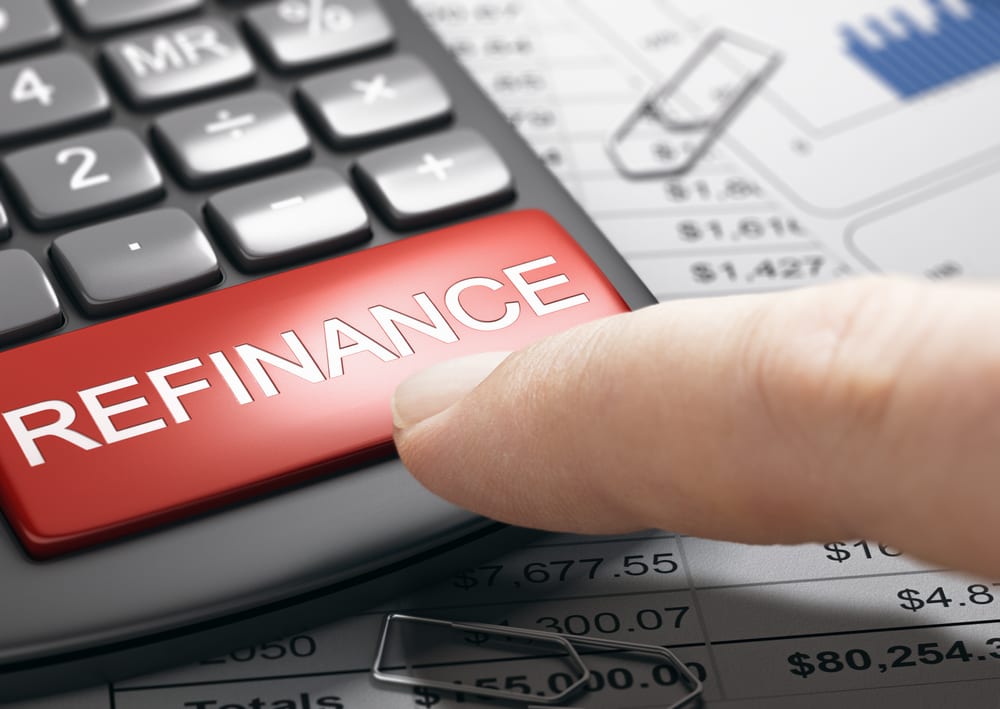If you’re a real estate investor, you may want to refinance your rental property to reduce monthly expenses and maximise your profits. However, you’ll need to meet stricter qualifying requirements to get approved for the best rental property refinance rates.
Why do you want to refinance your rental property?
Refinancing a rental property can free up cash for repairs or maintenance, or give you extra money to build and manage your real estate investment portfolio. Below are some common reasons to refinance an investment property and information on rental property refinance rates.
Lowering your interest rate and monthly payment: reducing your rental property refinance rates and payment increases your rental income. You can use the extra monthly income to pay for small repairs in cash or to pay off your mortgage early.
Accomplish other financial goals: if you’ve built equity up in one or several rental homes, you can use cash-out refinance funds to renovate your home to increase the rent; buy another investment property with cash; increase cash reserves for future repairs or rental property purchases.
Paying yourself back for an all-cash purchase: if you used a sizable part of cash to buy a foreclosed home or a fixer-upper that didn’t meet regular lending guidelines, you may consider Fannie Mae’s “delayed financing”. It allows you to take cash out to replace the cash used to buy the home, basing the loan on the current market value rather than the original purchase price.
Paying off expensive hard money loans: if you took out a short-term, high-interest rate hard money loan to fix up or buy a property, you may pay it off with a rental refinance loan. Though, you need to watch out for prepayment penalties as many hard money lenders build them into your loan terms.
Shortening your loan term: switching from a 30-year fixed-rate term to a 15-year term could save thousands in long-term interest. However, the higher monthly payment will cut into your net rental cash flow and could strain your budget if a tenant moves out and you struggle to find a new renter.
Learn the requirements to refinance a rental home
History has shown that when hard financial times hit, rental home defaults and foreclosure rates begin to rise. Lenders offset this risk by setting stringent lending standards for rental property refinance rates. Fannie Mae and Freddie Mac, government-sponsored enterprises that buy mortgages to keep mortgage money flowing, set most of the guidelines for rental property refinances.
Minimum rental refinance requirements usually include:
20% or more equity. Although Fannie Mae guidelines allow for 15% equity to refinance an investment home, most lenders will require at least 20%. However, there may be special programs to help you refinance an underwater investment property (an outstanding mortgage or loan on it where it is greater than the value of the asset).
Lower DTI requirements. Lenders often restrict your maximum monthly debt payments divided by your gross income to 43%. Also known as your “DTI” ratio, this requirement is lower than the 50% maximum for primary residence refinances.
Higher minimum credit scores. The minimum score requirement is 640 — but to get the best rental property refinance rates, you’ll need a score of 700 or higher.
Up to six months’ worth of cash reserves. Save up six months’ worth of mortgage payments in a cash or “liquid” account to meet this requirement. The mortgage reserve guideline applies to each rental property you own. So, if you own four investment properties, you’ll need to have enough cash to meet the requirement for all four homes, even if you’re only refinancing one of them.
An appraisal that verifies market rent. Even if you have a lease on the rental home you’re refinancing, lenders typically require an extra appraisal form called a “comparable rent schedule” to confirm the rent is typical for your area.
Proof you own the property in your own name. Investors often form LLCs or partnerships to limit their liability with investment homes. However, mortgage lenders won’t lend on a property held in an LLC or partnership because it hampers their ability to collect on the mortgage if you default. You must hold the title in your own name.
Proof you don’t have more than 10 financed homes. You won’t be able to refinance your rental home if you own more than 10 homes with mortgages.
Provide the documents needed to refinance a rental home
You’ll need more financial paperwork to refinance an investment property than a primary residence. Besides paystubs, W-2s and bank statements, make sure you have the following documents handy.
All pages of the last two years of your personal federal tax returns. Lenders analyse your Schedule E to see how much rental income you earned after expenses.
Closing statements for recently purchased property. These statements are required if you bought an investment property within the past six months and want to participate in the delayed finance program outlined above.
Current lease. You can provide a lease in lieu of tax returns if the property was just purchased or not rented due to renovations or repairs.
Proof of first month’s rent and security deposit. Lenders may require cancelled checks or bank statements to prove the income if you just renewed a lease or began renting a home you recently purchased.
Two months of bank statements showing funds for reserves. Besides checking and savings accounts, lenders will count retirement and investment accounts balances toward your reserve requirement.
Shop for the best investment property refinance rates
Comparison shopping with at least three to five different lenders is important to get the best rental property refinance rates at the lowest closing costs. Not all lenders offer refinance options for rental properties, while others may offer only limited cash-out refinances or may not allow cash-outs on certain types of homes, such as two-to-four-unit properties. In general, when you refinance a rental home you can expect the following.
Higher rates than primary residences. Investment property mortgage rates typically run from 50 to 87.5 basis points higher than rates on a primary home. As an example, if current primary residence rates are averaging 3%, you could expect to pay 3.5% to 3.875% for a 30-year fixed-rate investment-property refinance.
To pay discount points for cash-out refinances. A mortgage point equals 1% of your loan amount and you may end up paying a point or two if you plan to refinance a rental property. Two-to-four-unit non-owner-occupied cash-out refinances are very expensive, so carefully consider the cost versus the benefits of tapping equity on a multi-family home.






